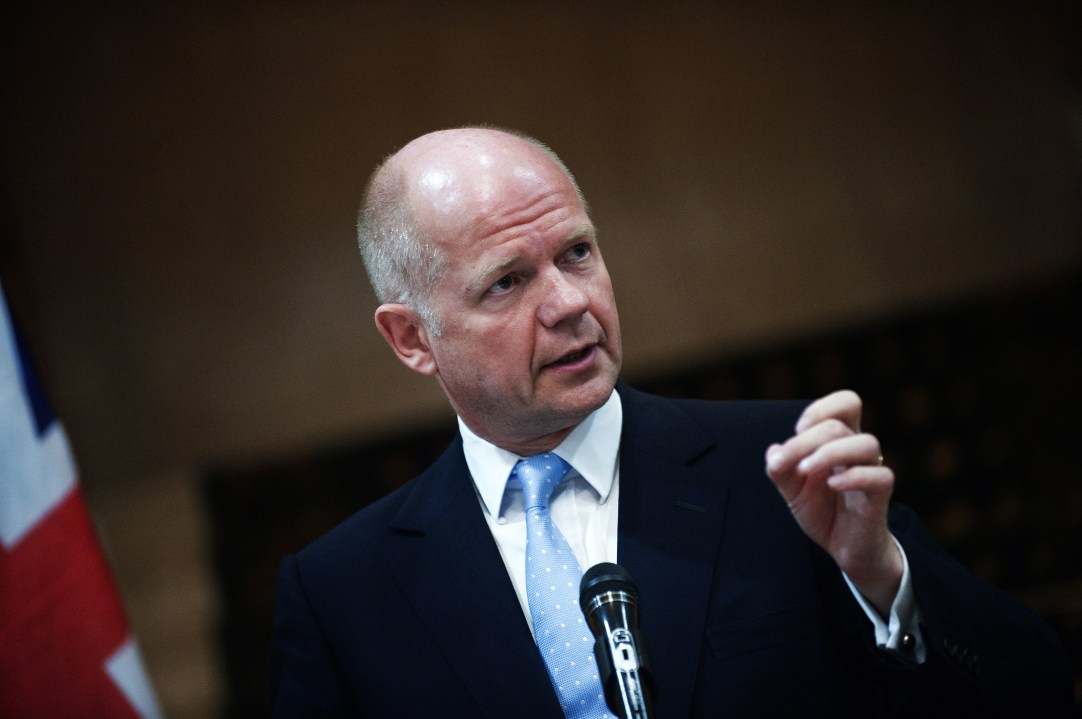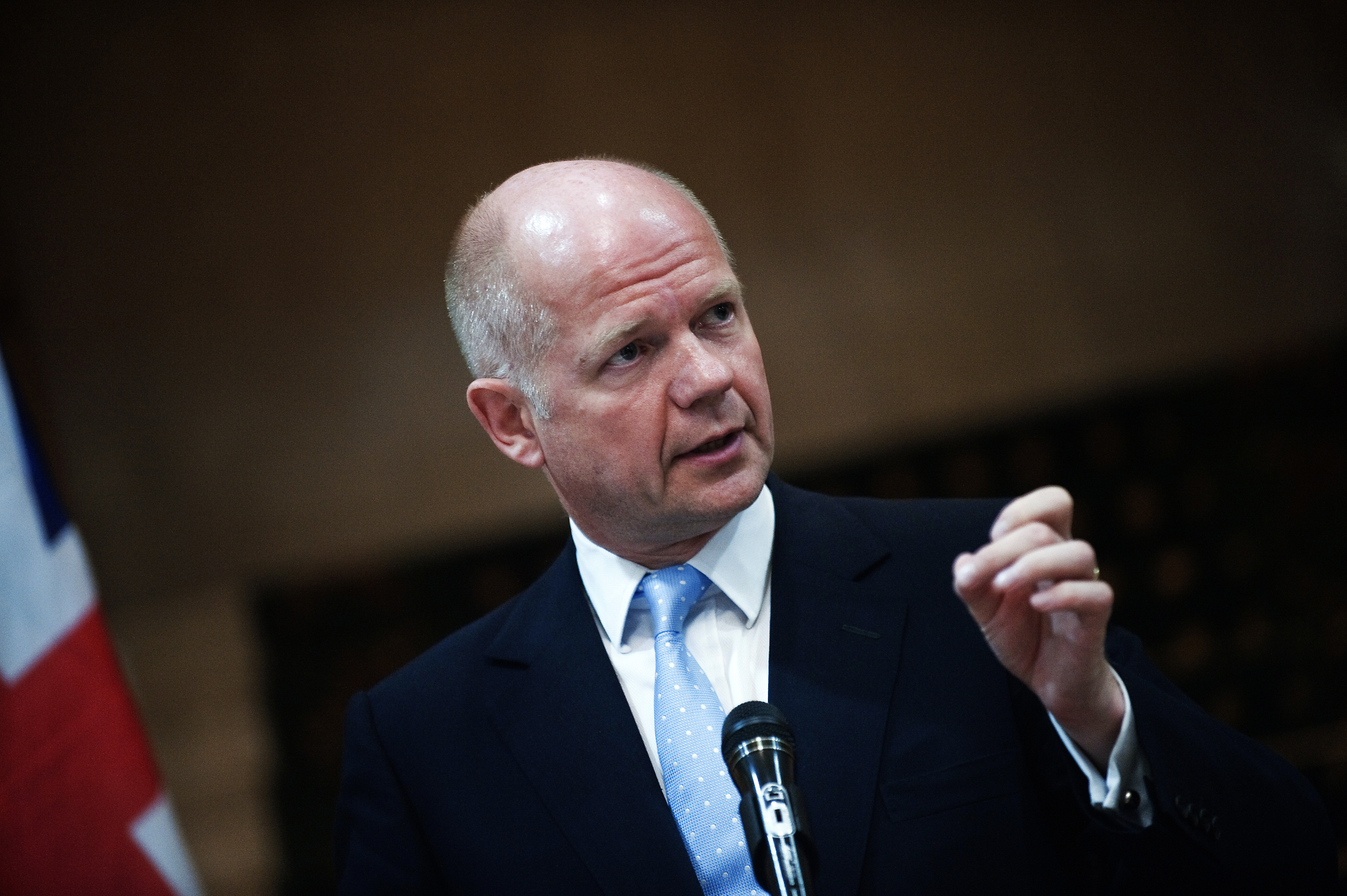William Hague has an article in the Times today arguing against what he refers to as the ‘pessimism’ of those who have expressed concerns about the direction of the ‘Arab Spring’. As somebody who cannot see the virtue of either optimism or pessimism as policy, and preferring facts to moods, I think the Foreign Secretary’s central points should be answered. Particularly as he chose so injudicious a day to publish his piece.
Mr Hague’s argument against pessimism is that ‘such pessimism misses the extraordinary opportunities that popular demand for freedom and dignity bring’.
Certainly the government of which Mr Hague is a part is not missing any opportunities. Today David Cameron is heading to meetings with the heads of one of the two most powerful and oppressive states in the entire region – Saudi Arabia. This isn’t a first. In March last year, sensing where the popular wind was blowing, Mr Hague lauded the Egyptian protesters before heading to Downing Street and welcoming the Saudi Foreign Minister whose mercenaries were right at that moment gunning-down Bahraini protestors. Just today the Committee on Arms Export Control has demanded to know why the UK has been selling weapons to Saudi Arabia which have been used against the people of Bahrain.
Acknowledging that governments always have to find some compromises between pragmatism and morality, it nevertheless seems that this government is finding it particularly difficult to locate a balance – and even harder to locate the consistency without which almost any efforts in the region are doomed.
Anyhow – doubtless this is all terribly pessimistic. Fortunately in his Times piece Mr Hague riffs on all the ‘positive’ things that those straw-man ‘pessimists’ keep ignoring. Perhaps simple ‘optimism’ is the foreign policy we’ve all been waiting for. So regarding the wider events Hague writes, ‘On the positive side, Tunisia has its
first democratically elected parliament since the 1950s, with 24 per cent of the seats held by women’.
True. But then, on the negative side is the fact that the party of the Muslim Brotherhood (Ennahda) won the most seats. One might also add that on January 5th when the leader of the terrorist group Hamas arrived in Tunis (strange choice for such an early visit?) he was greeted by a couple of thousand supporters of the Ennahda party welcoming him with, among other familiar theme tunes, the
chant: ‘Kill the Jews’. Anyhow – nobody wants to be a pessimist, so back to the bright side.
Mr Hague informs us of the ‘positive’ fact that ‘Turnout in the first phase of Egypt’s elections was above 60 per cent, compared with 23 per cent in the 2005 elections under the Mubarak regime’. True, that’s a wonderful upsurge in voter turnout. I’m simply not sure this ‘positive’ of increased turnout trumps the ‘negative’ fact that the parties which have been rushed into power are the Islamist parties. Nor, it seems to me, does it over-ride the fact that since March last year more than 100,000 Coptic Christian Egyptians have fled the country. Mr Hague finds an attempt to soften all this. For instance he describes the electoral success of ‘parties rooted in Islam’ and parties ‘drawing their inspiration from Islam’. Yet that is not the case. The Muslim Brotherhood parties coming to power across the region draw their inspiration from violent Islam, political Islam, and totalitarian Islam. For instance the ‘Freedom and Justice Party’ has already committed to withdraw Egypt from the major conventions protecting the rights of women. It is wrong to present them as Islamic versions of the Christian Democratic Union.
A final point of optimism for Hague is that ‘Bahrain has begun to take steps to implement the conclusions of its commission of inquiry into the violence last year, although the need for full implementation remains’. Now I know politics is a dirty business, but even by political standards this requires a quite amazing degree of casuistry. Britain has a significant arms-export business with Saudi Arabia. All perfectly legal of course. British exports mean British jobs etc. If that is the argument that Hague wants to make, then fine. It was one of the lines that the Prime
Minister was veering towards before the Arab ‘Spring’. But it would seem to me that it is either possible to be on the side of authoritarian governments massacring the people they attempt to own. Or it is possible to be on the side of the people being massacred. If you are on the former side then you sell arms to the Saudis and help them put down uprisings in places like Bahrain. If you are on the other side then you don’t. But, leaving moral issues aside for a moment, is it not at least a contradictory position to sell arms to a government and have friendly relations with that government, yet welcome as a ‘positive’, as Hague does, the ‘implementation’ of the recommendation of a commission of inquiry into that government’s behaviour?
Mr Hague is right to say that ‘greater freedom and democracy in the Middle East is an idea whose time has come’. But it will not be an idea lasting long unless people are honest about what is before them. Granted we must be careful not to be seen to be ‘dictating’ events, but nor should we be afraid of consistency – consistency in defending the values which we hold and consistency in our wish to see them upheld elsewhere. The simple fact is that ‘optimism’ – however much of it you claim to hold – may be a pleasant mood, but it does not add up to a policy.








Comments